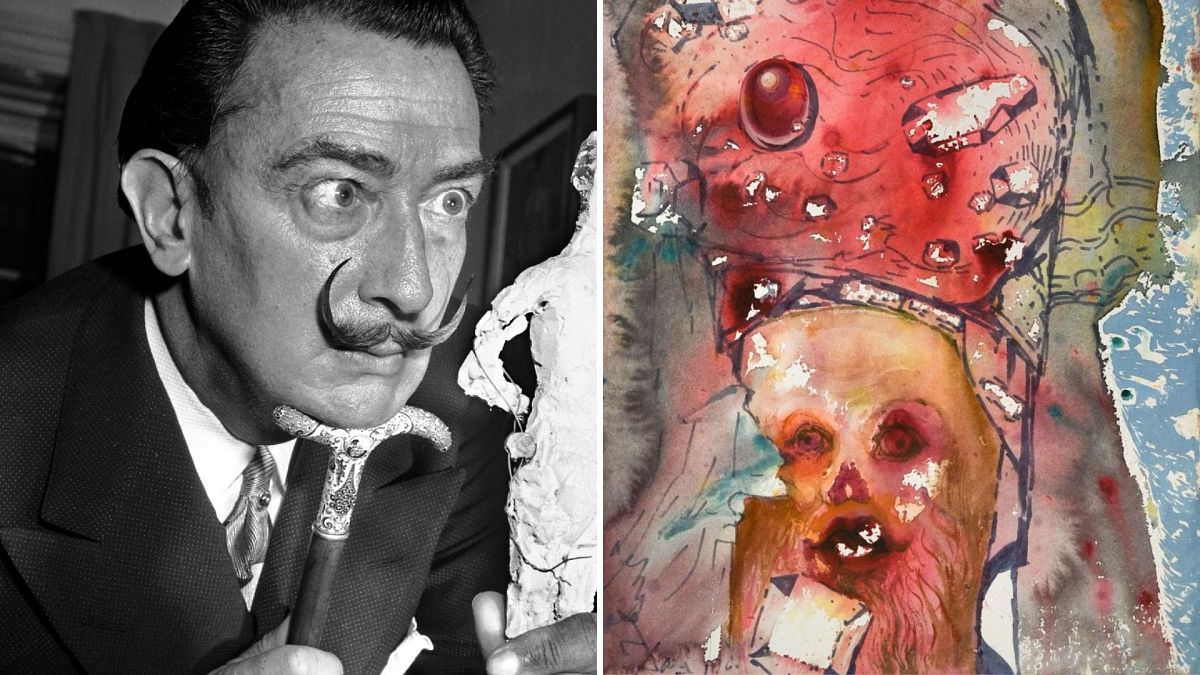

This week has led us through a fascinating array of events across art, technology, and geopolitics. From the rediscovery of a lost Salvador Dalí painting to the implementation of the EU’s AI Act and the ongoing political developments in Kosovo, each narrative offers its own unique contribution to the cultural and socio-political tapestry of today.
In a delightful turn of events for art enthusiasts, a 1966 watercolor by the famed surrealist artist Salvador Dalí, believed lost, was rediscovered in an unexpected location—a London garage sale. The piece, part of Dalí’s lesser-known Arabian Nights series, was acquired by an antiques dealer for a mere £150. Now authenticated, the piece is poised to command a price nearly 200 times that original sum at an upcoming auction. This discovery highlights the perpetual allure of art and its mysterious ability to surface in the most ordinary of settings, reminding both collectors and appreciators that treasures often lie in wait beyond the obvious.
Meanwhile, in the realm of technology and intellectual property, the European Union’s AI Act is becoming increasingly pivotal. As parts of the Act come into effect, discussions have surfaced about its efficacy in safeguarding artists’ copyrights. Creative communities are voicing concerns, suggesting that while the legislation is a step forward, it may still fall short in adequately protecting copyrighted material from being used to train AI systems. This ongoing dialogue underscores the delicate balance between technological advancement and the preservation of creative rights, a balance that is crucial in today’s rapidly evolving digital landscape.
Shifting focus to geopolitics, Kosovo continues to navigate a significant parliamentary impasse. The country’s Constitutional Court faces an impending deadline to clarify procedures for electing the parliament speaker, after numerous failed attempts have left a political stalemate that has persisted for six months. The outcome of this legal clarification is anticipated to play a key role in resolving the deadlock and guiding the nation’s path forward. This situation illustrates the complexities of governance and the vital role of constitutional frameworks in ensuring political stability.
On an international stage, Qatar has strategically positioned itself through cultural diplomacy, particularly evident at the prestigious Art Basel fair. By intertwining cultural patronage with economic and geopolitical objectives, Qatar is exemplifying how soft power can be utilized in global arenas. This strategic engagement offers a glimpse into how nations can craft multifaceted roles in international affairs, fostering both cultural enrichment and strengthening diplomatic ties.
Lastly, a subtle yet noticeable tremor unfolded across parts of New Jersey and New York City, with a 3.0 magnitude earthquake making its presence felt over a weekend evening. Residents reported feeling the gentle shake in places such as Brooklyn and Hasbrouck Heights, serving as a small reminder of nature’s underlying dynamism in urban settings. Although minor and not resulting in any damage, such seismic activities often remind city dwellers of the natural forces coexisting with human-made environments.
This array of stories encapsulates a week rich with cultural rediscovery, technology-driven discussions, political navigation, international diplomacy, and the subtle threads of nature’s presence, each contributing to the broader narrative of our shared global journey.
Source: {link}
